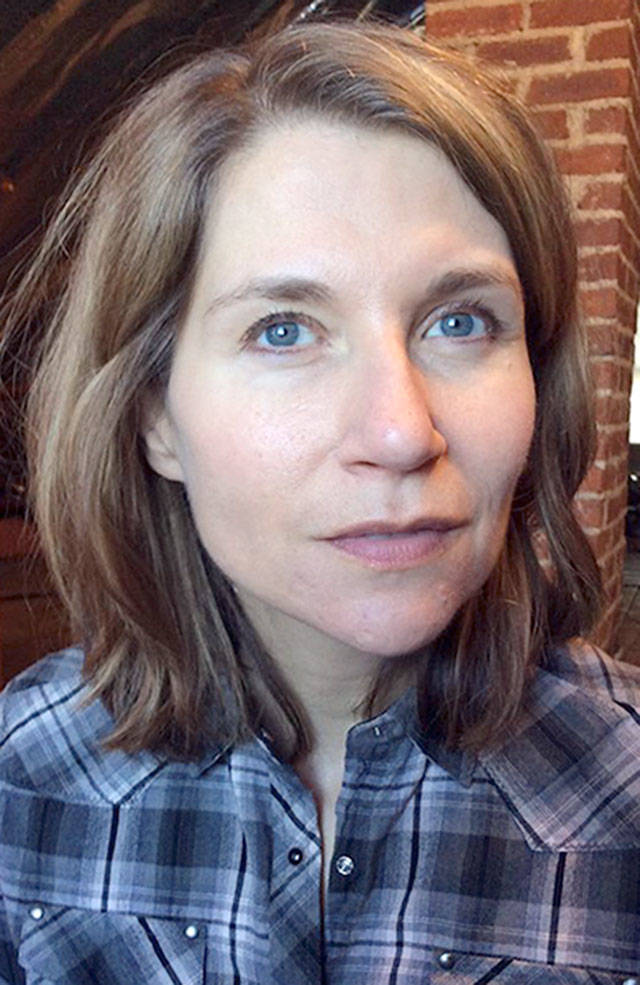PORT TOWNSEND — Jennifer Haigh’s dad had a saying.
“There are two kinds of jobs: The kind where you shower before and the kind where you shower after.”
Haigh, a daughter of Appalachia, grew up to be a New York Times best-selling author of novels and short stories; she chooses to write about the shower-after working class, regardless of how challenging her folks can be.
The writer, who moved to Bainbridge Island a year ago from Boston, is coming over to give a free talk at the Port Townsend Library, 1220 Lawrence St., at 7 p.m. Thursday.
She’ll read from her novel “Heat & Light,” which received best book of the year honors from the New York Times, Washington Post, Wall Street Journal and National Public Radio, discuss her writing process and take questions until 8:30 p.m.
Haigh is well-acquainted with both types of labor —and chooses to write about the shower-after kind, even if it is the most challenging.
Haigh comes from a Pennsylvania coal country town that used to be called Barnesboro. After the mines closed in the mid- to late 1980s, many families packed up to go. The shrunken town’s council voted to merge with neighboring Spangler to become Northern Cambria, Pa.
In addition to her novels, Haigh has written a collection of interconnected short stories titled “News from Heaven” about a fictional community much like Barnesboro. She has stayed fascinated with the life cycle of a company town, and what happens to a place when it loses its original reason for existing: This is what she explores.
Both of Haigh’s parents came from big families. She has a large flock of aunts, uncles and cousins. The characters in her books are drawn from life, populating her stories with several generations of people who don’t have an easy stroll through youth, middle or old age.
Her first novel, “Baker Towers,” opens during World War II and unfolds into the 1960s. “Heat & Light,” her fifth, lives in a town where fracking’s arrival changes everything.
Back in the days when the coal mines employed most of the town’s men, the families there shared common ground.
Yes, mining is a tough industry and hell on the environment, Haigh acknowledges, “but it does create a certain kind of community. There was nobody in town who did not have some connection to the mines.”
There are parallels across this continent, from the copper country of Michigan’s Upper Peninsula to the logging and mill towns of the Pacific Northwest. Haigh admits she’s always had a desire to time-travel back to when the people of these towns were united as neighbors.
Of course those times weren’t all sweetness and light. People struggled with illnesses, from black lung to alcoholism. Then as now, they did what they had to to make a living.
Writing a novel about her people is hard, Haigh said.
“It’s an exercise in extreme empathy. In ‘Heat & Light,’ I’m writing about characters who work in the gas industry; about the people in the town who sell their mineral rights and the people who refuse to sell their mineral rights … and all of the people involved,” she said, “have reasons for what they do.
“Being a novelist is like being an actor: inhabiting the character without making judgments.”
Haigh writes about the poisoning of people and of the land; about addiction to fossil fuels and drugs.
She writes about the people who, in the wake of it all, find ways to go on.
Haigh, winner of the PEN/Hemingway Award for her debut novel, received another major accolade in 2018: the $55,000 award from the Guggenheim Foundation, which grants fellowships to artists and scholars. It has helped her devote the past year to writing her next novel, about which she will say very little.
And while the writer is secretive about this work, she’s outspoken on the topic that dominates her thoughts.
The class system in this country: It’s something she believes Americans don’t want to discuss. The working class doesn’t appear in much contemporary fiction. And “the United States is a meritocracy” is, Haigh said, a myth.
You’d better believe this writer is delving into issues of class in America. Her desire is to follow her characters into their struggles — into their souls — to know them as well as she knows her own family.
As for the novel she’s writing right now, Haigh is near the point of conclusion, that point when the stories come together.
“I’m closing in,” she said.
________
Diane Urbani de la Paz, a former features editor for the Peninsula Daily News, is a freelance writer living in Port Townsend.

